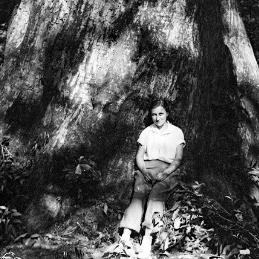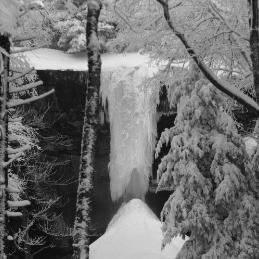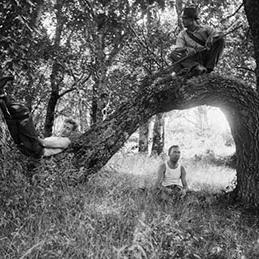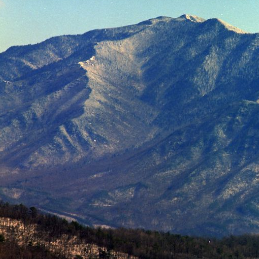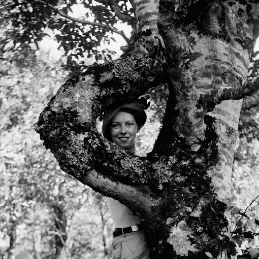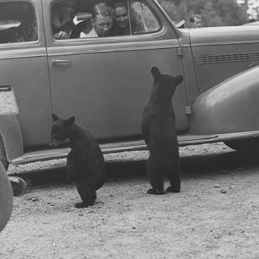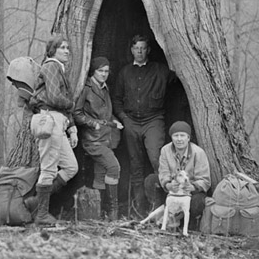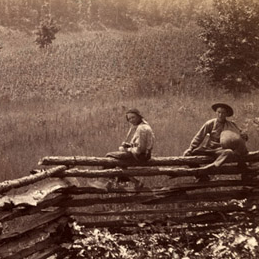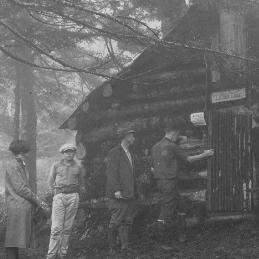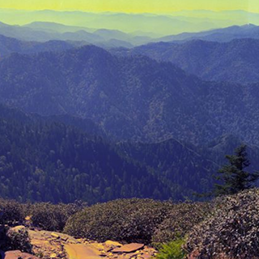Browse
Export 117 results:
Filters: Keyword is Woolly adelgids [Clear All Filters]
A Checklist of the Insect Fauna Associated with Eastern Hemlock, Tsuga canadensis (L.), in the Great Smoky Mountains National Park In Final Report Submitted to the Southern Appalachian Cooperative Ecosystem Studies Unit. Knoxville, TN: U.S. Department of the Interior, National Park Service , 2008.
Changes in the Great Smoky Mountains Fraser Fir Forest (1990-2000) In Report to the Great Smoky Mountains National Park. Knoxville, TN: University of Tennessee, 2004.
Changes in Old Growth Hemlock Forests of the Cataloochee Watershed in the Great Smoky Mountains National Park : Preparing for the Arrival of the Hemlock Woolly Adelgid (Adelges tsugae). Cullowhee, NC: Western Carolina University, 1999.
"Censuses of a Breeding Bird Population in a Virgin Spruce-Fir Forest on Mt. Guyot, Great Smoky Mountains National Park, Before and After Balsam Wooly Aphid Infestation." In Twelfth Annual Scientific Research Meeting, Great Smoky Mountains National Park. Johnson City, Tennessee: National Park Service, Southeast Regional Office, 1986.
A Census of a Breeding Bird Population in a Virgin Spruce-fir Forest on Mt. Guyot, Great Smoky Mountains National Park In Zoology. Knoxville, TN: The University of Tennessee, 1968.
"Beetles Enlisted to Help Protect Smokies Hemlocks." The Tennessean (2013).
Balsam Woolly Aphid Infestation of Fraser Fir in the Great Smoky Mountains. Knoxville, TN: University of Tennessee, 1977.
"Balsam Woolly Aphid in the Southern Appalachian." Journal of Forestry 77, no. 5 (1965): 1154-1158.
The Balsam Woolly Aphid and Spruce-Fir Forests: A Summary of Pertinent Information for the Great Smoky Mountains National Park Interpretation Staff and the Tremont Environmental Education Center Staff In The Uplands Field Research Laboratory Volunteer-in-Parks Interpretation of Science Project. Gatlinburg, TN: Great Smoky Mountains Natural History Association , 1983.
"Balsam Woolly Adelgid and Spruce-Fir Interactions in the Southern Appalachian Mountains." Proceedings for the 1988 Society of American Foresters National Convention 1988 (1988): 92-96.
"An Attribute-Based Approach to Contingent Valuation of Forest Protection Programs." Journal of Forest Economics 17, no. 1 (2011): 35-52.
"Attack of the Predator Beetles." Smoky Mountain Living 4, no. 3 (2004): 42.
Assessment of Factors Affecting Establishment of Biological Control Agents of Hemlock Woolly Adelgid on Eastern Hemlock in the Great Smoky Mountains National Park. Knoxville, TN: University of Tennessee, 2013.
"Assessing the Potential Impacts to Riparian Ecosystems Resulting from Hemlock Mortality in Great Smoky Mountains National Park." Environmental Management 44, no. 2 (2009): 335-345.
"Application of Spherical Statistics to Change Vector Analysis of Landsat Data: Southern Appalachian Spruce-Fir Forests." Remote Sensing of Environment 74, no. 3 (2000): 482-493.
"Application of a Spruce-Fir Forest Canopy Gap Model." Forest Ecology and Management 20 (1987): 151-169.
"Altitudinal Gradients of Bryophyte Diversity and Community Assemblage in Southern Appalachian Spruce-Fir Forests." In Proceedings from the Conference on the Ecology and Management of High-Elevation Forests in the Central and Southern Appalachian Mountains, edited by James S. Rentch and Thomas M. Schuler, 226. Newtown, PA: U.S. Department of Agriculture, Forest Service, Northern Research, 2010.




